
A long time ago in Israel
began the story that we now tell.
Mary, a maiden young and fair
was talking to God one day in prayer
when He sent His angel to that place
and the angel said,
“Hello Mary, full of grace,
the Lord is with you. I am sent to ask
if you will please fulfill the task
of being mother to God’s own son.”
Said Mary, who loved God, “Your will be done,”
and began to prepare for the coming event
to welcome the baby whom God would send.
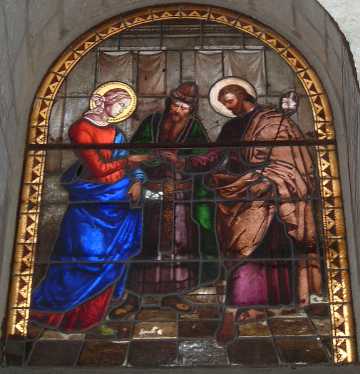
So begins my original Christmas story, first written for my own children, later used for my grandchildren, but in between a regular part of MARFAM’s liturgical year programmes. Thousands of generations of Catholic families have heard and told this simple and beautiful story. But in reality it could not have been all that simple for Mary. There were strict rules in the Jewish community about unmarried girls becoming pregnant and on top of that she was betrothed to be married. I have a little book in my library TWO FROM GALILEE which presents a love story of Mary and Joseph, not an old widower as is sometimes suggested, but a special boy from the village she was hoping to marry in due course. They and their families were faithful and God-loving Jews strictly observing Jewish laws. Both Mary and Joseph initially must have had some serious worries, but God prepared and helped them through sending his angel. Mary’s motherhood is respected and celebrated widely in the Church and the feast of the Annunciation on 25th March commemorates the visit of the Angel Gabriel to Mary. St Joseph’s feastday is on 19 March.
Today’s pregnant teenagers wouldn’t find themselves in quite such a drastic situation but the stress, the sense of panic and hopelessness is real. Women in their 20s and older, with an unexpected pregnancy do also experience panic and practical worries. Many women, young and older, do take the drastic step of terminating the pregnancy. Prospective fathers also have a role to play but legally they have no rights. Many women and men do experience guilt and a sense of loss. Possibly they may only seek healing for this years later. Rachel’s Vineyard is a specialist weekend retreat offered in Johannesburg and Cape Town for those who suffer the pain, grieving and guilt in the aftermath of abortion. Visit www.rachelsvineyard.org for local information.

Options, other than abortion should be much better known. After all one is dealing with an unborn human person with the same right to life as the mother, although the SA legislation only concerns itself with the women’s right to her own body.
Giving birth and keeping the baby, after due reflection and counselling, is more common today than adoption. Many young girls remain in the family, stay at home and learn to cope, with the help of their family. Schoolgirls go back to school. Bringing up a child alone is no simple matter either, for a working mom, or even a dad as happens too, and choosing to be a single parent does need careful consideration. CoLA’s Divine Mercy Home outside Johannesburg is a pregnancy crisis home and offers pregnant women a safe and supportive environment before, during and after the birth and offers skills training to assist the mother in making a new start in life. See www.cultureoflife.co.za
Newborn babies are sadly quite often dumped or abandoned. The police and social workers will search for the mother and hopefully will be able to offer much-needed help should they reunite them. TLC, The Love of Christ ministries, is one resource that accepts such unwanted babies, cares for them for a time and prepares them for adoption. Go to https://tlc.org.za/
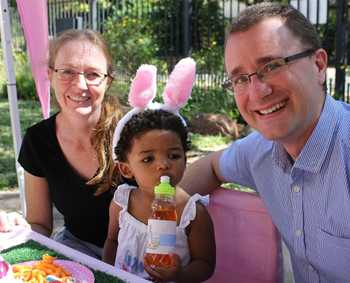
Adoption is not as common today, mainly because fewer babies are offered for adoption although there are more willing adoptive parents wishing to provide a loving, caring home for a child. Strict legal requirements make adoption a complex matter under the Department of Social Development. The CWL Adoption society operates from the CWL office in central Johannesburg and places around 40 babies per year, mostly brought from the hospitals and at times from a mother herself. Fostering is another option, which can be a temporary measure, but is also at times chosen because foster-parents can receive a grant, whereas adoption does not receive financial support.
Some facts. Termination of pregnancy, i.e. abortion was legalized in SA in 1996 with certain requirements like counselling. Google for detailed information. It is reported that today 1 in 4 pregnancies end in abortion and around ¼ million abortions are performed annually with ½ of these being illegal, with a greater health risk for the mother.
The feast of the Annunciation on 25 March invites us to consider and appreciate the generous openness of Mary, the young woman who readily accepted the responsibility of bearing God’s Son for our salvation.
Can we consider too the question of rights as well as responsibilities, the right to life, the right to a family, the right to be loved and nurtured as one of God’s most precious gifts to families and humankind. In our society today do we consider seriously enough how the gift of the right and the responsibility to conceive a child is or should be cherished and valued rather than too easily be disregarded or abused? TR FW 23 March 2022


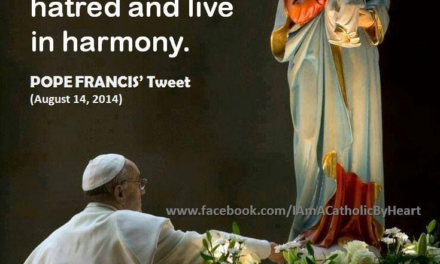


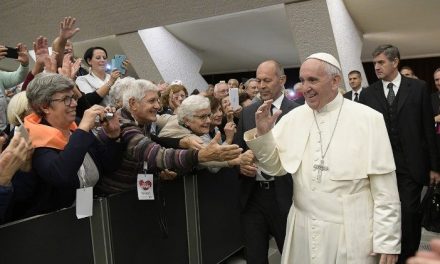
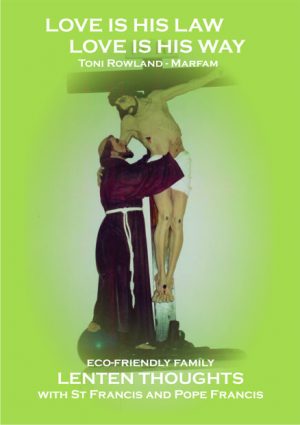
Recent Comments